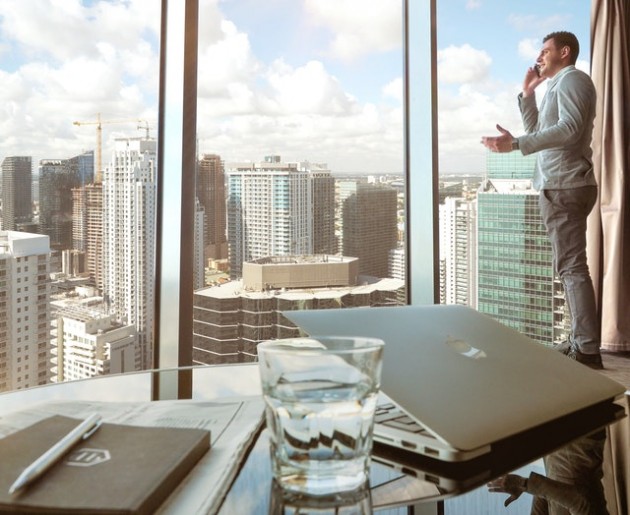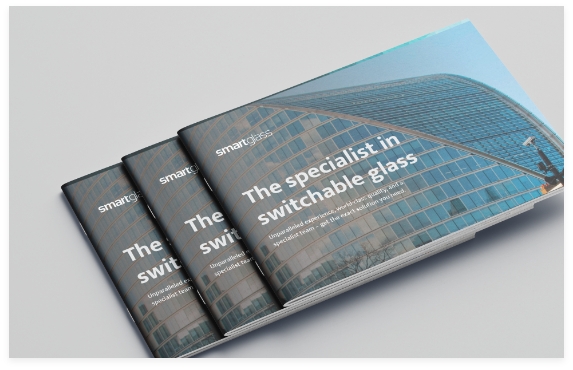Download Smartglass Brochure
spaces that adapt to users’ needs at the flick of a switch.
Technological innovations are challenging architects to dramatically step up hotel interior design. One of the new design trends on the rise is to create a ‘smart’ hotel room, where designers use modern technology to provide a more comfortable, enjoyable experience for guests.
Hotel chains and boutique hotels worldwide are now planning to fully integrate technological innovations within the next five years. world–renowned Hilton hotels even recently unveiled an Innovation Gallery, in which they exhibited some of their ideas for hotel rooms of the future, including noise cancellation devices and easily accessible controls for the lighting, music, curtains and TV.
A “smart” or “connected” hotel room integrates a host of futuristic design solutions and technologies to provide a completely customized guest experience. While hoteliers are each taking different approaches to designing “connected” hotel rooms, there are several key trends that are emerging. Some of the most popular technology incorporated into designs are:
Keyless entry
No need to worry about losing your room key anymore, in the smart hotel all you need is your phone. By using a hotel specific app you are able to check-in and enter your room without needing a key.
Voice activated
Some connected hotel rooms provide voice-activated features to update you on traffic, the weather and even you’re scheduled. Guests can also use voice activation features to request room service, cleaning, and any items that were forgotten at home.
Robotic Butlers
The development of robotic butlers started in 2014 and are starting to be used in the hospitality industry. Forget mouthwash, deodorant, or your sunscreen? A robotic butler will deliver it to your room within minutes of your request.
Noise cancelling devices
Hotels such as the Hilton provide devices in rooms called Nightingale. The small device releases white noise to eliminate sounds from the street or other guests in the hotel – enhancing their privacy as they will not be able to hear one another from their room.
Connected tablets
Tablets are provided in the connected hotel rooms so guests can customise the light settings, room temperature, music, and tv or streaming devices. The tablets also allow guests to request services from the staff.
Switchable smartglass
Switchable blackout glass can be used in smart hotel room design to eliminate the use of unsightly curtains or blinds. The technology quickly switches from clear to opaque in a matter of seconds by using the connected tablet, a switch, or a timer.

Guest experience is the main priority in the hotel industry. Increasing numbers of hotels are looking to design smart hotel rooms to provide the most comfortable, easy, and enjoyable experience possible for guests.
Personalisation
For returning guests, personalisation features can be added prior to your stay by using management software. Guests are able to create a personal profile before arriving at their chosen hotel; the software can then anticipate guests’ personal needs before they arrive. The app also allows you to customise your preferred room temperature to create a calming environment for your stay.
The key theme emerging in smart hotel room design is using technology that can be beneficial to a variety of guests with different needs. Using blackout glass in hotel rooms gives the guest a choice of the amount of light entering the room. For those who prefer to sleep in, the blackout setting will eliminate all light from entering the room. Guests who like to get a jump start on the day can set a timer to change the window from opaque to clear for a more natural wake up call.
Relaxation
Hoteliers are prioritising the guests’ comfort when designing smart hotel rooms. To ensure an enjoyable guest experience, relaxing technological devices are added into rooms and facilities around the hotel. Aromatherapy aids are used in spa and leisure facilities to create a calm and relaxing environment. Guests can also select their preferred scent to wake up or fall asleep to. In a connected room, aromatherapy aids can be set to specific timers allowing guests to select a soothing smell before bed or a refreshing scent to wake up to in the morning.
The use of noise cancellation technology also increases the level of comfort in smart hotel rooms. The noise from traffic or construction outside of the hotel is extinguished, resulting in a quiet and calm environment. Guests also benefit from an enhanced level of privacy as they are unable to hear other guests in their rooms or in the lobby.
Communication
Smart hotel rooms help streamline communication between the hotel staff and the visitors. A recent survey conducted by Oracle and Phocuswright found that 90% of business travellers and 80% of leisure travellers call for an increase in the use of technology to efficiently communicate with the staff. In the smart hotel, the customisable apps on your phone or on the connected tablet, as well as voice activation software can easily notify staff if you have any requests.
Over the course of the next five years, we will see more and more hotels incorporating technology into the design of their rooms. The guest experience in the hospitality industry is becoming more personalised than ever, making travelling a lot easier and more enjoyable. Keyless entry, customisable lighting, and robotic robots are already being used in several hotels around the world. The use of switchable blackout glass in hotels offers a hygienic and aesthetically pleasing solution for standard hotel curtains. Learn more about how blackout glass can be used in smart hotel room design here.

Wherever you are in the world one of our team will be in touch to advise on the best smart glass solution for your needs.